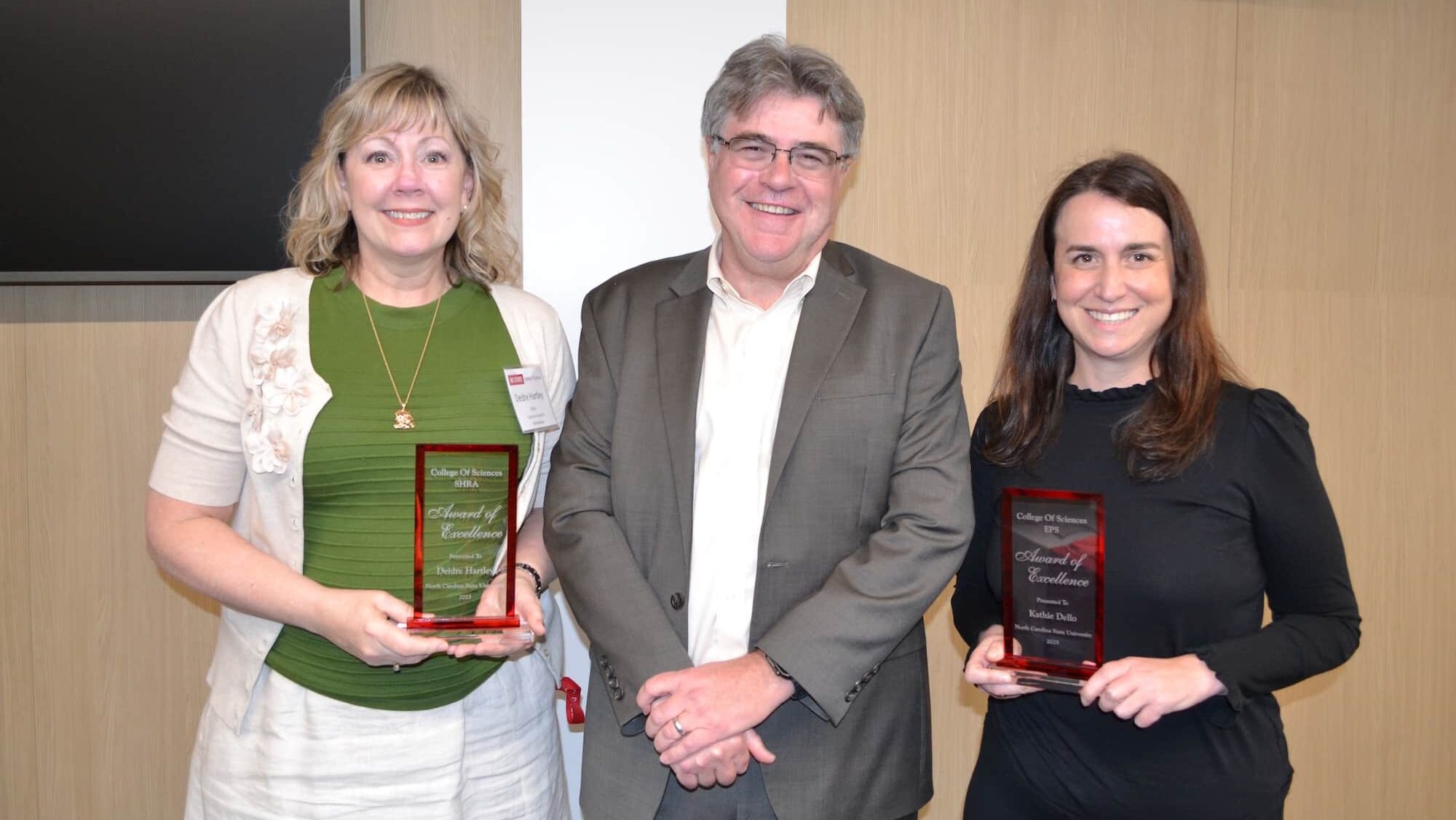Leadership, From the Lab to the Legislature
In her time at NC State, graduating senior Natalie Truby has made her mark on campus and for ride-share users across North Carolina.
Natalie Truby’s time at NC State taught her a lot of things — including how to get things done.
After hearing about the murder of University of South Carolina student Samantha Josephson last spring by someone she thought was her Uber driver, Truby became interested in legislation that could protect ride-share users. She decided to email N.C. House of Representatives Majority Leader John Bell to see what the state legislature could do, even though, as a microbiology major, she didn’t have much experience with public policy.
“It seemed like a pretty simple thing to get done, so I decided to push myself out of my comfort zone and do it,” Truby said.
That simple email helped initiate House Bill 391, known as the Passenger Protection Act. The act requires ride-share drivers to display their license plate number on the front of their car, along with an illuminated sign with the ride-share company’s logo. The bill was signed into law by Governor Roy Cooper in August 2019.
Her work with the ride-share bill garnered local media coverage and helped her earn a College of Sciences Student Excellence Award.
“It really hit me that I had done something big when I started getting into Ubers and Lyfts and saw the front license plate number displayed and knew I had taken a step to help keep my peers safe,” Truby said.

“A lot of college students underestimate their power and what they can accomplish. I really hope that I empowered some other people to take initiative for what they believe in as well.”
Truby’s foray into public policy was just one aspect of her very busy NC State experience.
Her path began in the Life Sciences First Year (LSFY) program, which helps first-year students interested in life sciences find the right degree program. She had loved science since she was a kid and knew she wanted to study biology, but the program helped her discover an interest in microbiology.
“I didn’t know anything about microbiology when I came in, but one of the beautiful things about LSFY is getting resources and opportunities to learn about other disciplines,” Truby said.
Truby has pursued neuroscience research through the Meitzen Lab, including an independent project studying how hormones can affect neurons in female brains.
“A great thing about NC State is that there are opportunities for undergraduates to get real research experience,” Truby said.
She also jumped headfirst into the NC State community, getting involved in Allies for Students With Disabilities and the Kappa Delta sorority. And she has been a university ambassador for most of her time at NC State, giving campus tours to prospective students.
“That’s been a really great way to give back,” Truby said. “I love to show other students what NC State’s all about and why it’s so wonderful to be here.”
Being away from campus during her last semester because of the coronavirus pandemic wasn’t what she had planned, but she said the community she’s found at NC State has still thrived. “The support and spirit of the community here is truly incredible,” she said. “It’s been a tough time, but still filled with joy in a unique way.”
In the fall, Truby will be enrolling in the Biomedical Sciences Doctoral Program at the Virginia Commonwealth University School of Medicine. But that doesn’t mean she’s staying away from public policy.
“I’ve learned not only political science majors can do great things in the government and really make a difference,” Truby said. “It’s great to know I can take the leadership skills I have developed and apply them to scientific topics that I’m passionate about.”
- Categories:



